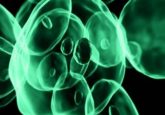New treatment strategy for patients with EGFR-mutant lung cancer

Activating EGFR mutations in non-small-cell lung cancer were discovered in 2004. Patients harboring these mutations, who have been treated with EGFR–tyrosine kinase inhibitor (TKI), are expected to live longer than 2 years. However, lung cancer eventually progresses and the patients die of the disease. Thus, alternative treatments are needed for EGFR-mutated lung cancer. Here, we review the alternative treatments for patients with activating EGFR mutation. Combinations of available EGFR–TKIs (gefitinib or erlotinib) with chemotherapy and newer EGFR–TKIs (second-generation or third-generation EGFR–TKIs) have been developed as treatments for obtaining a more durable response or overcoming the acquired resistance to current EGFR–TKIs. In addition, new drugs other than EGFR–TKIs have also been developed. Their targets include EGFR itself and downstream signals of EGFR pathway, among others. However, these therapies cannot reach clinically striking effects so far. Greater efforts are needed to achieve an increased response, overcome resistance and prolong overall survival.
Click here to view full article.




